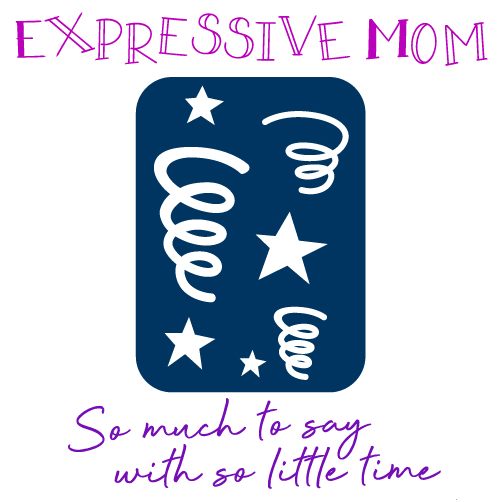Here is a fact. Autism is a family condition. When there is one child in the family with autism, every family member is affected. When parents are told that their child has autism, you can expect that the parents will all react differently. Some will be glad that there is an explanation for their child’s poor development and will accept it right away, and work with it. However, I would say the majority will react with anger, grief, shame, denial or rage. Sometimes they become angry with the doctor who had given the diagnosis and will just refuse to believe it. In fact, many families have stated that when they were faced with autism, it was quite traumatic.
When it comes to many married couples, studies have shown that the mother is a lot more emotionally and physically affected by the diagnosis than the father. And for fathers who disagree, please do not shoot me. I am just basing this on research. The reason that I can think of is that, even in this day and age, fathers are away from home at work for the majority of the day and are not faced with it every minute. The truth is that the majority of mothers are left in the major caretaker role, and face the day-to-day stress of rearing a child with autism. For fathers the major impact of autism in the family is associated with the stress it puts on the mother. Figures in North America seem to indicate that the divorce rate in families of children with autism is not higher than in families who are not impacted. This is something that has not been studied extensively in other countries. However, one study conducted in indicates that the single parent rate in families with autism is 17%, compared with 10% in other families. Many times the father cannot cope and ends up leaving everything to the mother. Or sometimes the mother is so traumatized that she is the one who ends up bailing out, and leaves all of the responsibility to the father.
Studies have shown that the emotional impact of autism on the mother can be quite severe. Many mothers experience enough emotional distress to require medication or psychotherapy. And I am not going to lie. The year 2007 was one of the worst ones I can remember because that is when Jordan had received the diagnosis and I went through a downward spiral. I had to use whatever strength I had to pick up the pieces. And when I did recover, that is when I was focusing on my spiritual and astrological studies. And is this something that I am really completely recovered from? No. And I don’t think I ever really will be. However, I have gone through the 5 stages of grief and I have finally gotten to the acceptance phase. That is all it means. It is what it is, and I am grateful that my son is doing better and there is always going to be a lot more work to keep him on a positive path.
In fact, one study showed that 50% of mothers of children with autism screened positively for significant psychological distress. This was associated with low levels of family support, financial burdens as therapies are very expensive on top of bringing up a child with challenging behaviours. Another study raised this figure to 66%. The emotional stress on the mother appears to have a significant effect on the work status as wel. Many cannot work outside the home. For those that manage to work outside the home, there is an increased incidence of tardiness, missed days and reduction to part-time status. Mothers are also most likely to be held responsible for their child’s behaviour by others outside the family, including neighbours and teachers. Mothers tend to cope differently with these stresses than fathers. Fathers tend to hide their feelings and suppress them. That often results in increased episodes of anger outburst. Mothers tend to cope by talking about their difficulties with friends, particularly other mothers of children with autism. They also cope by becoming avid information seekers, often knowing more about autism then the educators of their children.
The impact of autism on the siblings is not to be underestimated. They know from an early age that their brother or sister is “different”. They will be filled with questions, however most of the time they don’t ask them for fear of hurting the parent’s feelings. The will have a deep love of the sibling with autism but this love is sometimes associated with anger and resentment due to the increased time the parents spend on the sibling with autism. They will often worry about their own future and obsess about whether or not they will “get” autism or will they pass it on to their own children one day. My daughter has asked me many times that if she were to have kids, if her future kids are at risk for having autism. My response was that it is really unknown. However, I also said since there are so many studies in place for it now, that hopefully will mean that much better treatments will be discovered along the way.
I also want to mention that the impact is not always negative when it comes to siblings. Several studies have shown that being a sibling of a child with autism is associated with greater self-confidence and social competence. Care-taking skills often improve as well. Levels of tolerance to difference can be higher than in the siblings of children who do not have autism. So, what do we know about the impact of autism on the family? It is a mixed bag of results. At times is can be devastating, at other times it can lead to higher levels of coping skills and a sense of self-mastery. A lot depends on the family itself and the community in which it is embedded. A lot more depends on the support and treatments available, especially the educational interventions and help that can be provided.
By the way there is support out there. No matter where you live. It is there if you are trying to cope while raising a child with autism or any other disability. If you are living in York Region in Ontario, definitely get in touch with these 2 organizations.
http://www.communitylivingyorksouth.ca/
They will lead you to better things.
If you are not living in the Toronto or York Region, be sure to Google “autism support services + your city”. Help is there. You just have to become proactive and do some digging to find it.



This is some great information. I can totally agree with all of this. We just got my son’s diagnosis this summer I’ve been more accepting that my husband has. We are slowly working towards being on the same page. It’s stressful, I have so much anxiety and it’s been a learning process. I hope that it gets better with time.
Hang in there. I am never going to tell you it will be easy however it will improve once you find the right techniques and consistency is the key. Keep active in support groups, there is so much out there online and even offline. You just need to be proactive. I am very glad you stopped by.